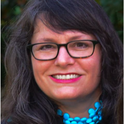
Popular Press
Portland Should Reject Athletic Club's Parking Expansion
The Oregonian
(2014)
Abstract
On May 21 a Portland hearings officer will hear testimony on a proposal by the Multnomah Athletic Club (MAC) to change the zoning on a block it owns (Block 7) next to its current parking structure. Block 7's boundaries are SW 19th to 20th and SW Main to Madison. The MAC wants 225 more parking spaces and some hotel rooms incorporated into Mill Creek's development of apartments on Block 7. This requires a change from its current zoning, RH, which allows mostly residential uses, to CX, which allows more commercial usage. The MAC's proposal will require City Council to vote for both a comprehensive plan map amendment and a zoning map amendment. The MAC's proposal should be rejected because of long-standing historical agreements prohibiting a zone change and because Goose Hollow shouldn't have to pay the price when the MAC chooses to build its way out of a perceived parking problem rather than disincentivize car use.
For a century, the MAC has shown a rapacious need for parking, buying up numerous blocks of houses only to demolish them and use the land for parking. The MAC purchased and destroyed more than 40 homes where its current parking structure sits and on Blocks 7 and 2 (large blocks on the adjacent hillside).
In 1981, four MAC representatives testified to City Council in support of a conditional use permit to build the club's current parking structure (on RH zoned land). They were questioned repeatedly by Mayor Frank Ivancie and City Commissioner Mike Lindberg, who made clear their strong suspicions that the MAC would also seek to change the RH zoning on Blocks 7 and 2 for their ever-sprawling parking plans. All four MAC representatives assured City Council that they would not.
City Council made it clear that it approved the conditional use permit allowing the MAC's current parking structure only because of the MAC's assurances that it would not try to change RH zoning on Blocks 7 and 2. The commissioners made it clear that they did not want to see the MAC come back to City Council asking for another zone change. The Goose Hollow Foothills League (GHFL—the neighborhood association) spent decades holding the MAC to this promise. Yet, here the MAC is asking to change the zoning. The MAC is blatantly hoping the city's and GHFL's institutional memory has faded. It has not. We residents will take every necessary action to force the MAC to keep its word on its obligations, which are still in effect.
After the MAC built its current parking structure, it kept using Blocks 7 and 2 for parking, even though its parking structure's conditional use permit required that it stop using these blocks for parking. Also, the MAC was required to replace the housing it demolished on those blocks. The city had to threaten to demolish the parking structure to force the MAC to stick to agreements in the conditional use permit. Here it goes again, as it seeks to turn a residential neighborhood into its commercial space. The MAC's rapacious desire for more parking has taken a grave toll on Goose Hollow. This pattern of behavior should be stopped.
Additionally, the MAC has done little to disincentivize car use. As a MAC member, I can receive four free parking stickers per person for my family of four. I am given no incentive to bike or walk and pathetically little incentive to take public transit. Numerous times, in public GHFL meetings, I've offered assistance to the MAC to disincentivize car use by helping connect it with PSU graduate classes specializing in this. I was repeatedly rejected by General Manager Norm Rich, who told me "that wouldn't work for MAC members." Why would we allow the wealthiest people in Portland to repeatedly expand their car usage, thus changing the residential nature of lower King's Hill into the MAC's commercial use? The MAC is the only institution in Portland wealthy enough to build its way out of a perceived parking problem rather than develop a parking management plan. (It's only a perceived parking problem since, in MAC surveys, 70 percent of members say there's no parking problem.) This is not the Portland way. This is a very suburban way of thinking and exactly what was feared by City Council in 1981.
The requested zone change should be rejected. The MAC has done pathetically little to disincentivize car use and should be forced to honor its word.
Tracy J. Prince, Ph.D, is a scholar in residence at Portland State University's Portland Center for Public Humanities and the author of "Portland's Goose Hollow."
http://www.oregonlive.com/opinion/index.ssf/2014/05/portland_should_reject_athleti.html
Keywords
- history,
- Goose Hollow,
- parking managment,
- urban studies and planning,
- parking policy,
- Portland,
- Oregon
Disciplines
Publication Date
May 14, 2014
Citation Information
Tracy J. Prince. "Portland Should Reject Athletic Club's Parking Expansion" The Oregonian (2014) Available at: http://works.bepress.com/tracy-prince/26/
